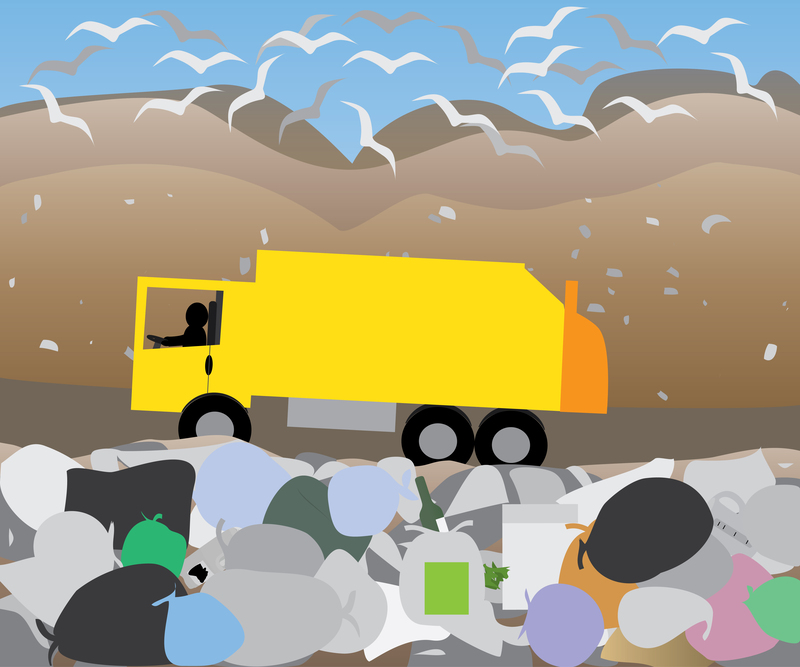Efficient and Cheap Ways to Handle Bulky Waste Items
Managing bulky waste items can be a daunting task for households, businesses, and communities alike. Whether it's old furniture, mattresses, appliances, or construction debris, disposing of large waste items is often both challenging and expensive. Fortunately, there are cost-effective and efficient solutions available. In this comprehensive guide, we explore the most practical and budget-friendly methods to handle, transport, and dispose of bulky waste items without breaking the bank.
Understanding Bulky Waste and Its Challenges
Before diving into specific solutions, it's critical to understand what constitutes bulky waste and why handling it efficiently is important. Bulky waste refers to large items that are too big to fit into regular waste bins or standard curbside collection systems. Common examples include:
- Old sofas, recliners, and lounge chairs
- Large household appliances (washing machines, refrigerators)
- Mattresses and bedframes
- Carpets and rugs
- Electronic equipment and TVs
- Construction debris and remodeling materials
Dealing with these items can be troublesome due to their size, weight, and sometimes hazardous components. Moreover, improper disposal can have serious environmental impacts. Therefore, finding cheap and efficient techniques for bulky waste disposal is essential for saving money and minimizing environmental damage.

Top Efficient and Cheap Ways to Handle Bulky Waste Items
1. Utilize Local Municipal Bulk Collection Services
Many cities and towns provide scheduled bulky waste collection days. These services often allow residents to place large waste items at the curb for pickup, either free of charge or for a nominal fee. To maximize this option:
- Check your local council's waste management website for schedules and restrictions.
- Group multiple large items together for single-collection efficiency.
- Ensure your items are placed at the correct location and time to avoid fines.
By properly leveraging municipal services, you can avoid rental costs for dumpsters or private hauling, making this method both cheap and effective.
2. Donate Usable Items to Charities or Community Groups
If your bulky items are still in usable condition, donating them is a win-win solution. Several charities and non-profit organizations accept furniture, appliances, and other large household items. The benefits include:
- Free pick-up services by many charities, saving you transportation hassle and cost.
- The satisfaction of helping those in need and supporting sustainability.
- Possible tax deductions depending on local regulations.
Research local organizations such as Salvation Army, Goodwill, Habitat for Humanity ReStores, or even local shelters. Many are happy to collect items directly from your home with minimal effort required from you.
3. Sell or Give Away Items Online
One of the most cost-effective and eco-friendly ways to dispose of bulky waste is to find a new owner. Thanks to various online platforms, you can sell or give away items quickly. Popular methods include:
- Use classifieds like Craigslist or Facebook Marketplace to list items for free or a nominal fee.
- Try neighborhood platforms such as Nextdoor for localized audience reach.
- Leverage "Freecycle" networks, where people give and take items at no cost.
Ensure your items are clean, take clear photos, and write descriptive listings. This not only removes your unwanted items efficiently but could put money back in your pocket, truly making bulky waste disposal cheap.
4. Rent a Truck or Use Car-Share Services for DIY Disposal
For items that can't be donated, sold, or picked up by municipal services, self-hauling might be your best bet. Renting a truck or using a car-share service with cargo options allows you to move bulky waste to your local landfill or recycling center at your convenience.
- Compare rental rates from companies like U-Haul, Enterprise, or local providers.
- If you don't have a truck, check car-share options (e.g., Zipcar or Getaround) for short-term use.
- Team up with neighbors to share costs and make the trip more efficient.
This method empowers you to control the process and often works out cheaper than hiring professional junk removal services.
5. Break Down Items for Standard Garbage Collection
Some bulky waste items, particularly furniture or old shelving, can be disassembled or broken down. By reducing the size, you might be able to dispose of the parts in your regular trash or recycling bins over several collection days.
- Use basic tools--screwdrivers, hammers, saws--to dismantle pieces.
- Separate recyclable metals, woods, and plastics as per local guidelines.
- Dispose progressively to avoid overfilling your bins and incurring penalties.
This technique is one of the cheapest and simplest ways to handle bulky household waste without paying additional fees.
6. Organize or Participate in a Community Bulk Waste Event
Many communities host bulk waste collection events, where residents can bring large items for disposal at a central location, often for free or at low cost. You can:
- Partner with neighbors to initiate such an event if none exist in your area.
- Contact your local municipality or community association for support and resources.
- Use such events as an opportunity to exchange, donate, or recycle items with others.
Community events make the process less labor-intensive and more affordable through shared logistics, which is especially useful for households with limited transportation options.
7. Use Professional Junk Removal Services--When They're the Cheapest Option
While professional junk haulers can be expensive, there are ways to minimize costs and maximize efficiency:
- Get quotes from multiple local haulers and compare prices.
- Schedule pickups during off-peak seasons, when prices may drop.
- Split the cost with neighbors or friends who also have bulky waste items.
- Look for local promotions or coupons on group deal sites.
If you simply do not have transport or manpower, a thoughtful approach to hiring junk removal services can keep costs surprisingly low while ensuring fast disposal.
Smart Recycling and Upcycling Solutions for Bulky Waste
Transform and Reuse Bulky Items
Before sending bulky items to landfill, consider their potential for reuse or upcycling. For instance:
- Turn old dressers into garden planters or storage benches.
- Disassemble wooden furniture for DIY projects and crafts.
- Repurpose metal frames and components for home repairs or decor.
Many online resources offer inspiration and tutorials for transforming waste into useful or beautiful items, saving you disposal costs while engaging in creative recycling.
Recycle Components Separately
Large items often include recyclable materials such as metals, plastics, and glass. To maximize efficiency:
- Separate recyclable parts and take them to the appropriate recycling center.
- Contact specialized recycling facilities for mattresses, electronics, or appliances--sometimes retailers will recycle these items for free upon delivery of new products.
By recycling rather than discarding, you reduce waste volume and protect the environment while potentially saving on landfill fees.
Tips for Reducing Future Bulky Waste
Efficiently managing bulky waste doesn't end with disposal--it also involves taking preventative measures to minimize future waste generation. Here's how:
- Buy durable, high-quality furnishings that last longer and reduce replacement frequency.
- Choose products with recyclable or sustainable materials.
- Rent or borrow items needed short-term, like event furniture or large appliances, instead of buying new.
- Practice regular maintenance to extend the life of LARGE items.
Adopting these strategies not only limits the burden of bulky waste but also leads to a greener, more cost-effective lifestyle.

Environmental and Legal Considerations for Bulky Waste Disposal
Proper handling of bulky waste is critical to avoiding environmental harm and legal trouble. Some bulky items, such as electronics, refrigerators, or mattresses, contain hazardous materials that require special disposal protocols. To stay compliant:
- Review your local government's bulky waste disposal laws and guidelines.
- Avoid illegal dumping, which can result in heavy fines and criminal charges.
- Use only licensed facilities and haulers for disposal of hazardous items.
Responsible bulky waste management preserves the environment and your peace of mind.
Conclusion: Efficient, Cheap Bulky Waste Solutions Are Within Reach
Dealing with large waste items doesn't have to be overwhelming or expensive. By leveraging a combination of municipal services, donation, sale, upcycling, and smart disposal practices, anyone can handle bulky junk efficiently and at minimal cost. Next time you clean out your home, office, or garage, remember these efficient and cheap ways to handle bulky waste items--you'll save money, help others, and make a positive impact on your community and planet.
Are you ready to clear out bulky waste responsibly? Start today by choosing the method that fits your needs, and share your success with your community--you might inspire others to follow your sustainable example!
